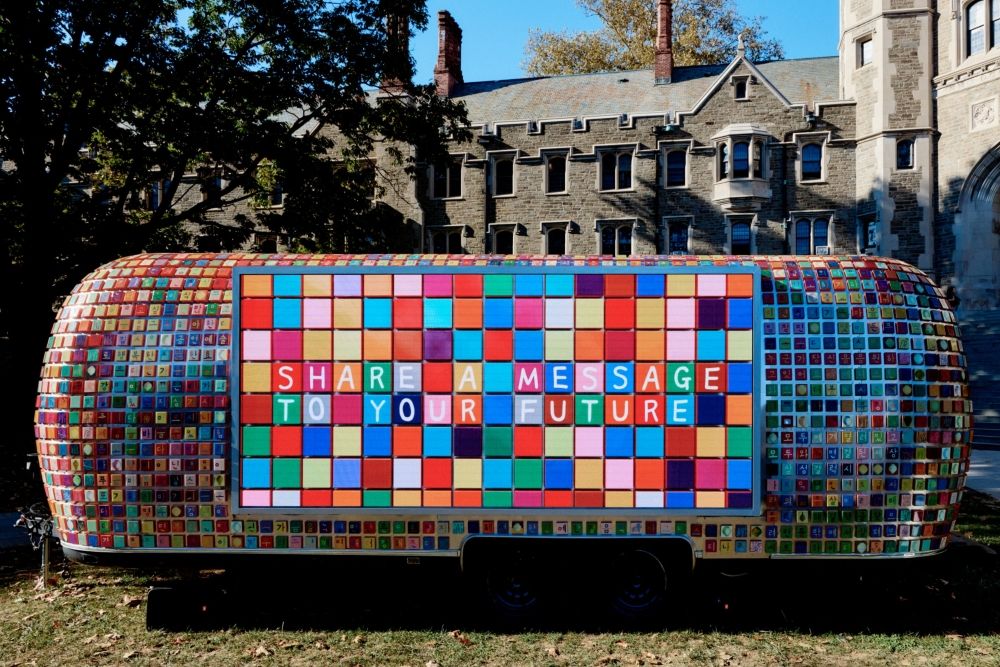Samsung just wrapped a groundbreaking cultural experiment that showcases AI's real-world applications beyond the usual productivity features. The tech giant's mobile Hangeul Truck toured six major US universities, using Galaxy AI's instant translation capabilities to transform personal messages into Korean art installations. This isn't just another marketing stunt - it's a glimpse of how AI translation technology is evolving from functional tool to cultural connector.
Samsung just proved that AI translation isn't just about business emails and travel apps. The company's latest cultural initiative demonstrates how Galaxy AI can bridge entire civilizations, one personal message at a time.
The centerpiece was a retrofitted Airstream trailer wrapped in Korean artist Ik-Joong Kang's signature Hangeul Cubes, touring six major universities across the United States this fall. But the real magic happened inside, where Samsung's Galaxy AI technology transformed the experience from static exhibition to living, breathing artwork.
Students and visitors typed personal reflections or notes to their future selves at interactive message stations. Galaxy AI instantly translated these English messages into Korean, displaying them on central LED screens as part of an evolving art installation. According to Samsung's announcement, participants "co-created a shared cultural canvas that bridged languages, ideas and generations."
This represents a significant shift in how tech companies are positioning AI translation capabilities. While competitors focus on business applications, Samsung's approach demonstrates the emotional and cultural potential of real-time language processing. The technology didn't just convert words - it created connections.
The campaign partnered with the Korean Cultural Center New York to commemorate both Hangeul Day and the 80th anniversary of Korea's liberation. Artist Ik-Joong Kang designed the experience around the Korean alphabet, created by King Sejong centuries ago. "The Hangeul Truck is where the past meets the present," Kang told Samsung. "What made this project meaningful was its openness - art not confined to an exhibition hall, but moving freely through various cities and campuses."
Beyond the translation technology, the truck offered selfie kiosks with custom Korean-inspired frames and temporary Hangeul tattoos. These tactile elements complemented the digital experience, creating multiple touchpoints for cultural engagement.












